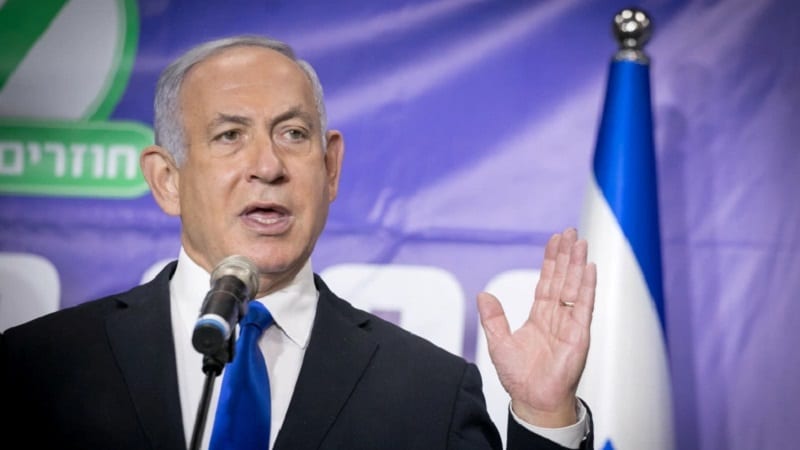Israeli Prime Minister Benjamin Netanyahu’s planned visit to the United Arab Emirates (UAE) on Thursday was cancelled, Israel’s public radio Kan said, citing a source involved in the planning.
Neither Israel nor the UAE has formally confirmed that such a visit – the first by the prime minister to the Gulf power – was to have taken place, nor that it was being reviewed.
Israeli media reported the planned visit on Wednesday, saying Netanyahu would meet Abu Dhabi’s Crown Prince Sheikh Mohammed bin Zayed Al Nahyan.
Commentators deemed it as a chance for Netanyahu to flourish his diplomatic credentials ahead of Israel’s March 23 election.
Earlier on Thursday, Israeli media said the planned visit could be held up or cancelled by questions over the air route to the Gulf state and an illness suffered by Netanyahu’s wife.
Normalisation of relations
Israel established formal relations with the UAE and Bahrain last September – only its third and fourth normalisation deals with Arab states in more than 70 years – as part of a US-brokered agreement. The three countries share common concerns about Iran.
The US-brokered deal under former President Donald Trump required Israel to halt its contentious plan to annex the already illegally occupied West Bank – a step which could have scuppered the possibility of a future Palestinian state.
Israel and the four Arab nations agreed to announce deals such as tourism and direct flights, and open embassies.
Saudi Arabia, a Gulf powerhouse and Islam’s birthplace, encouraged the rapprochement but has stopped short of recognising Israel itself.
Netanyahu, running in politically polarised Israel’s fourth election in two years largely on his role in its rapid COVID-19 vaccination programme, has also made his drive to forge new relations in the Gulf region a centrepiece of his campaign.
The most detailed of the accords was with the UAE. The nations agreed to approve bilateral deals on 15 areas of mutual interest, including finance, trade, aviation, energy, telecommunications, health, agriculture and water.
The two countries had nurtured clandestine security ties for years over a shared distrust of regional foe Iran.
In an interview with Israeli Army Radio on Tuesday, Netanyahu called on voters to re-elect him on March 23 so he could achieve “more peace agreements” in the area while ensuring Iran “doesn’t arm itself with nuclear weapons”.
Iran denies its nuclear programme is aimed at developing atomic weaponry.
Source: Al Jazeera






 WhatsApp us
WhatsApp us 

